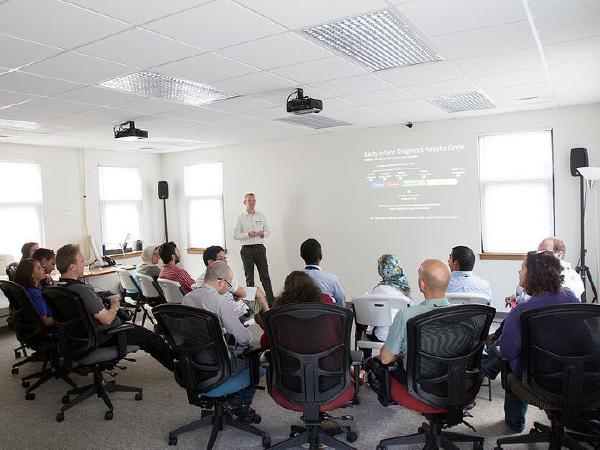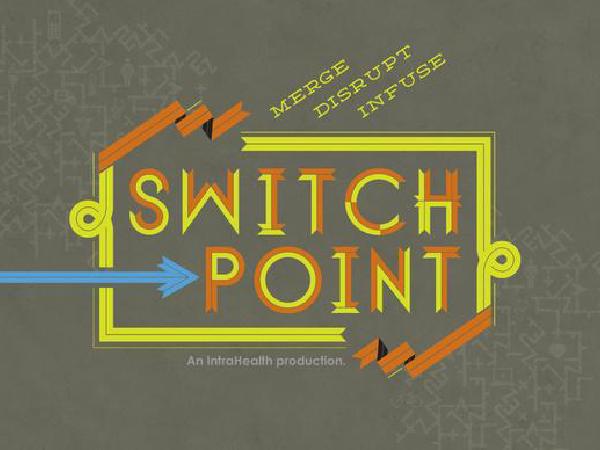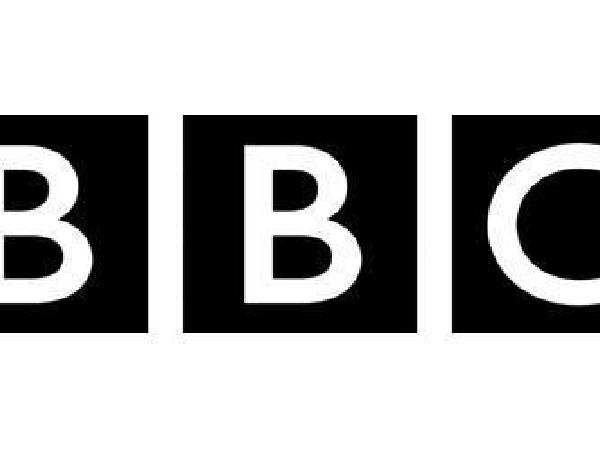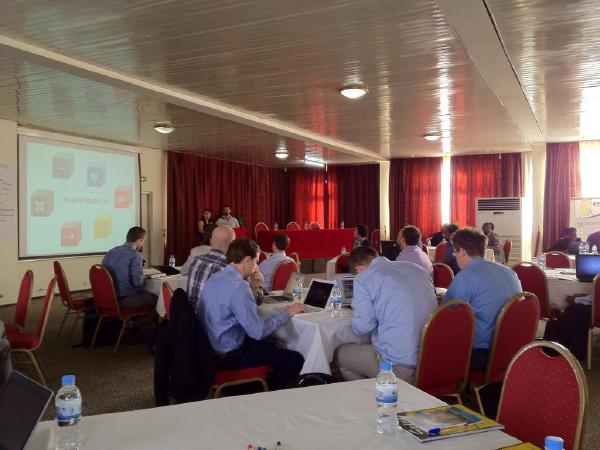Mhealth
2013

Caktus Teaches mHealth to Fulbright Enrichment Students
[As part of the Fulbright Enrichment [From Lab to Market]{style=“font-style: italic;”} seminar, Caktus hosted 16 Fulbright students from around the world on Wednesday, May 29th. The participants were engineering and science students with an interest in Public Health and Mobile Health innovation.]{#docs-internal-guid–15dfdd3-f622-293e-da9c-340d4c5b5818}

Caktus sponsoring and speaking on mobile health at SwitchPoint 2013
SwitchPoint is a one-of-a-kind conference and a unique opportunity to learn, share ideas, and hear about global and mobile health efforts around the world. We had a great time at SwitchPoint last year. I’m excited to announce that Caktus, for the second year in a row, is sponsoring [SwitchPoint 2013]{style=“color: rgb(17, 85, 204);”}.
2012

Project Mwana featured in the BBC
Caktus has had the opportunity to work on the infrastructure of RapidSMS, an application framework that allows data collection and logistics coordination using mobile phone text messages for communication. The BBC World News recently posted an article, "RapidSMS: Saving a life in 160 characters" detailing the effects of RapidSMS technology is having on HIV/AIDS treatment in the developing world. The article focuses on work being done to combat the HIV/AIDS epidemic in Malawi where there is one of the highest rates of infection in the world.

Thoughts after attending the UNICEF Rwanda mHealth Conference
This past July, I had the pleasure of attending the UNICEF Rwanda Conference in Kigali, Rwanda. The conferences focus was on developing a comprehensive eHealth suite for numerous nations to implement.

Project Mwana in MobileActive
This past week, Project Mwana was a featured article on the site MobileActive. Project Mwana is a RapidSMS application that connects rural health clinic workers in Zambia and Malawi to HIV testing centers, increasing the collection and turn around time for results to over 50%. Tobias worked with the UNICEF Innovation team on the ground in Zambia and Malawi to assist with the systems architecture and training local developers to maintain the system. The RapidSMS platform allows the application to be easily scalable at a very affordable cost, making it one of the most efficient ways to connect people and send data between people. By the end of 2012, the goal is to have 250 clinics in Malawi using Project Mwana and complete coverage in Zambia by three years.
2011

An alternative RapidSMS router implementation (with Celery!)
We've been using RapidSMS, a Django-powered SMS framework, more and more frequently here at Caktus. It's evolved a lot over the past year-- from being reworked to feel more like a Django app, to merging the rapidsms-core-dev and rapidsms-contrib-apps-dev repositories into a single codebase (no more submodules!), to finally becoming installable via pypi. The "new core" is in a great state now and is much easier to work with. However, one particular aspect of RapidSMS, the route process, has always been complicated and confusing to deal with. Tobias began the conversation on this issue after returning from a 6-week long UNICEF project in Zambia. He summarized the route process like so:
2010

HIV Results, Birth Reminders, and Clinic Communication in Malawi
I recently returned from a 6 week trip in Malawi, where I was heavily involved in the implementation and deployment of Project Mwana, an Information and Communication Technology (ICT) project focused on Maternal and Newborn Child Health (MNCH). The project is currently running as a pilot in both Zambia and Malawi. This post is a fairly technical overview of what the project does and the way in which it was developed.